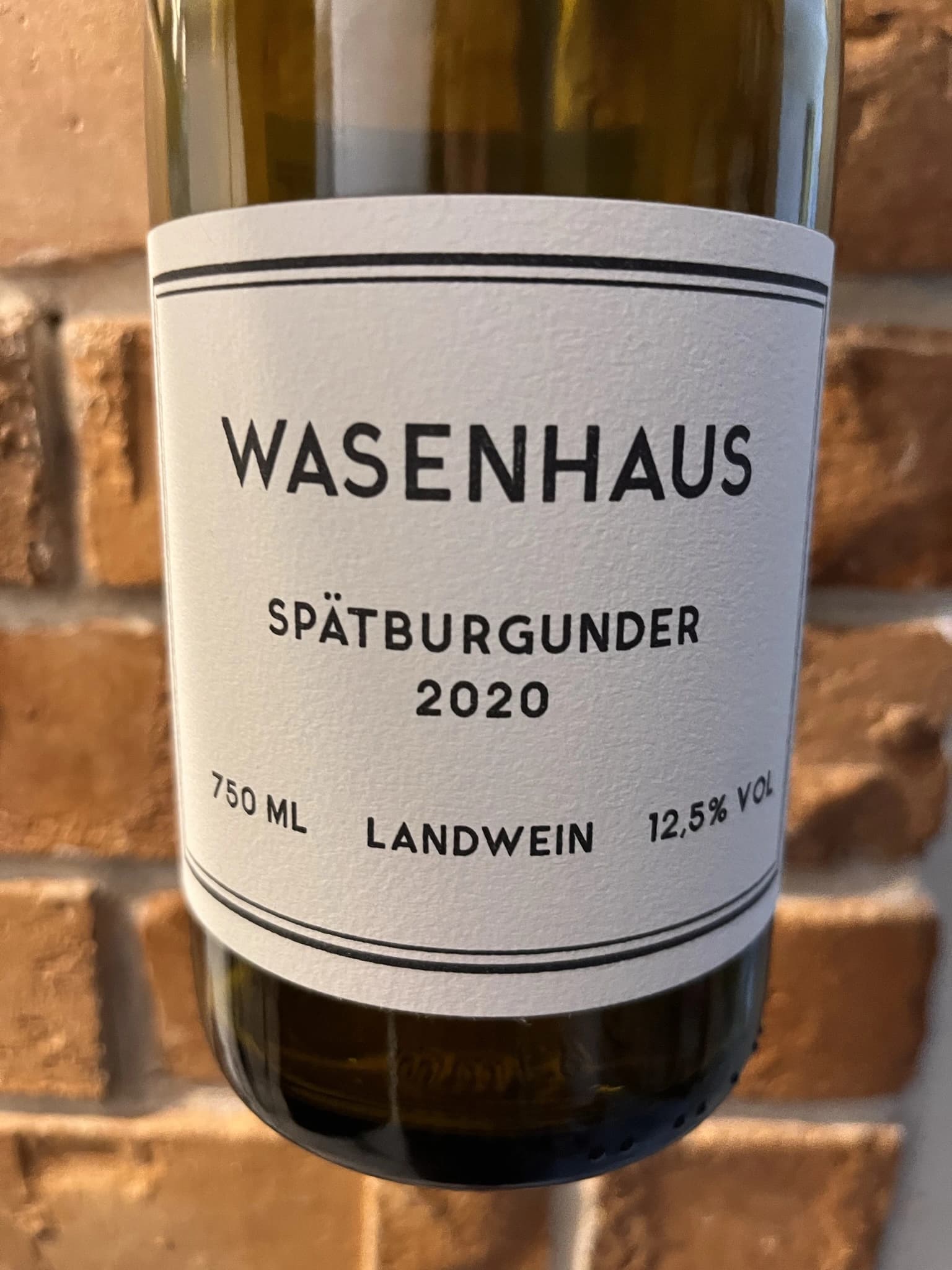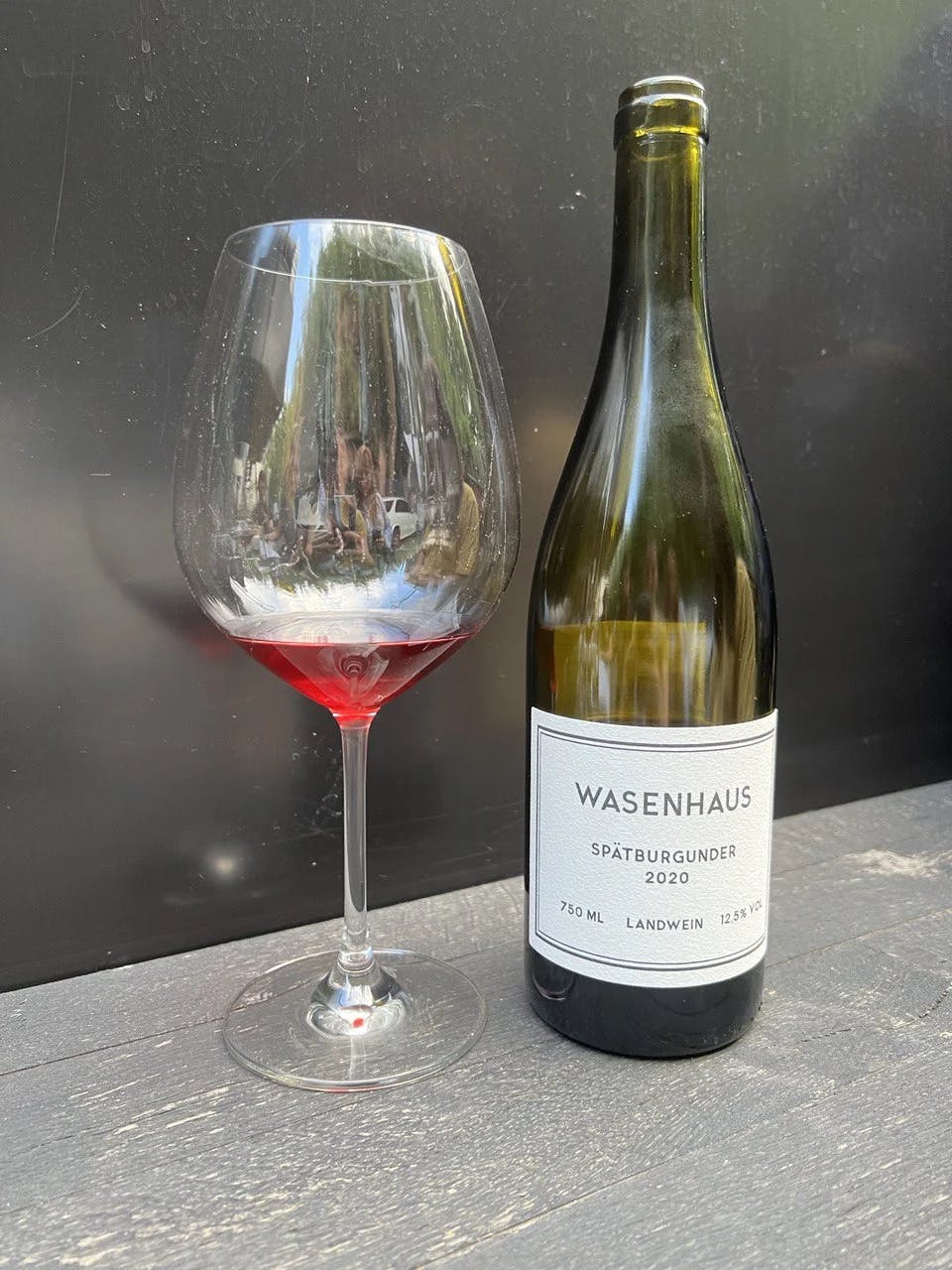Wasenhaus Spätburgunder 2020
- Region
- Germany » Baden » Badischer Landwein
- Type
- red still, dry
- Producer
- Vintage
- 2020
- Grapes
- Spätburgunder
- Alcohol
- 12.5
- Sugar
- 0
- Volume
- 750 mL
- Cellar
- not available

Ratings
After tasting so many gross wines, it was a pleasure to drink this beautiful Spätburgunder. In some sense, it reminds me of a younger version of Peter Max 2018. Well made and stylish. Cherry, raspberry, sunflower seed, and slate. More ready than Vulkan, so you can drink it now, but it will be better in a year or two. Good value.

About Producer
At a Glance
- Founders' Burgundian Heritage: Christoph Wolber and Alexander Götze, founders of Wasenhaus, bring extensive experience from prestigious biodynamic estates in Burgundy, influencing their winemaking philosophy and techniques in Baden, Germany.
- Focus on Terroir and Organic Practices: Wasenhaus is renowned for its meticulous selection of vineyards with old vines and unique parcels, emphasizing organic farming and biodynamic principles to reflect the distinct terroir of Baden.
- Minimal Intervention Winemaking: The winery champions gentle extractions, judicious use of sulfur post-malolactic fermentation, and aging in oak barrels, aiming for wines that express purity, complexity, and the essence of their vineyards.
Wasenhaus, a winery in Baden, Germany, marks a unique venture in the wine world, rooted deeply in both German soil and Burgundian tradition. Founded by Christoph Wolber and Alexander Götze, who met during their enological studies in Burgundy, their journey from roommates to co-founders of Wasenhaus encapsulates a shared vision for wine-making that combines their German heritage with the profound influence of their Burgundian apprenticeships. Their decision to establish the winery in Baden was driven by a desire to explore the potential of this region, leveraging their extensive experience from some of the most respected biodynamic estates in Burgundy. They carefully selected plots in Baden, focusing on areas such as the slopes of the Ehrenstettener Oelberg and Ehrenkirchener Kirchberg, and have since expanded their holdings to include vineyards with very old vines. Their winemaking approach, emphasizing gentle extractions and minimal intervention, reflects a deep respect for the terroir and a commitment to expressing the unique character of their vineyards. The use of oak barrels for ageing, judicious application of sulfur, and a focus on old vines and clones are a testament to their meticulous approach to crafting wines that resonate with the essence of their chosen land.
What sets Wasenhaus apart is not just their background or their methods, but the palpable connection between the wines they produce and the lineage of Burgundian viticulture. Despite being firmly planted in German soil, their wines, particularly the Pinot Noirs, evoke comparisons to the revered Pinot Noirs of Burgundy, a testament to both the quality of their craftsmanship and the potential of Baden as a wine-producing region. This blending of influences is further enriched by the diversity of Baden's terroir, from löess-covered hillsides to a variety of soil types that contribute to the complexity and uniqueness of Wasenhaus wines. Their commitment to rediscovering and nurturing old clones and vines within this diverse landscape speaks to a broader ambition: to redefine the voice of Pinot Noir and other varietals within the context of Baden's rich geological and climatic tapestry. In doing so, Wasenhaus not only challenges perceptions of German wine but also pays homage to the historical and cultural connections that link this region to the broader narrative of European winemaking.